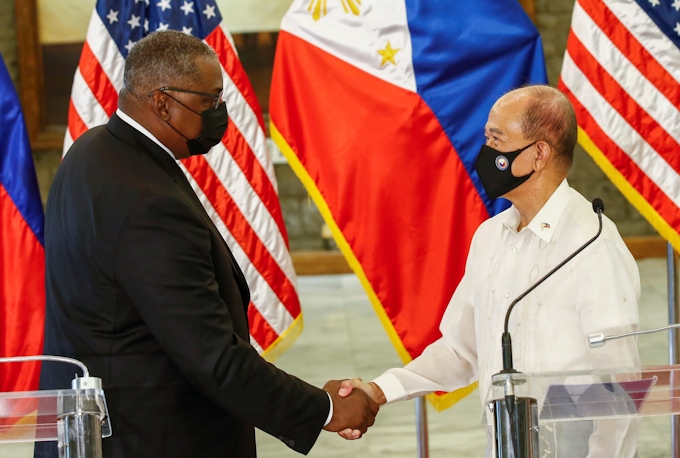After an Attempted Rape, How Will Japan Address Its Military Contractor Dilemma?
Many will remember the murder of a woman by a military worker in Uruma five years ago. Though the suspect this time was thwarted, attempting to repeat that previous heartbreaking incident is unforgivable and should not be ignored. The American and Japanese governments must show they will enforce any measures necessary, whether they be limitations on those living off-base or on military leave, to ensure something this ghastly never happens again.
According to prefectural police, on April 17 at around 5:50 a.m., a U.S. Air Force serviceman allegedly tried to sexually assault a woman on the road near his residence in the middle of Okinawa’s main island. The woman swung at him, driving him off. The two did not know each other. This runs parallel to the tragic incident in April 2016, when a former Navy serviceman turned military worker murdered a woman with whom he had no connection, as she was out for a walk, dumping her in a thicket of trees.
After the incident in Uruma, the Japanese government added a supplementary provision to the Status of Forces Agreement with the United States addressing civilians employed by the military, and established the Okinawa Regional Safety Patrol, known colloquially as the “blue patrol,” to keep watch during the night as a way to curb crime.
According to Article 17 of SOFA, the United States generally has jurisdiction over military-affiliated personnel for actions that take place while on duty. Even when off duty, if the suspect is affiliated with the military, the suspect is held in U.S. custody for trial. Along with instances where suspects have fled the base to destroy evidence, this shows how SOFA provides special treatment to certain criminal offenders, making it a lightning rod for controversy with regard to the U.S. military justice system. Contractors, such as the suspect from Chatan who worked at an eatery on a U.S. Air Force base, are also considered military personnel in Japan. This is not the case in countries with similar status of forces agreements, such as Italy or Germany.
While the supplementary provision may have been drafted to reduce the number of civilian workers who receive special treatment, as of this January, there were 12,631 civilians employed by the military, according to the Ministry of Foreign Affairs, an increase of 1,351 people from 2019. As the blue patrol mostly ends up dealing with people who are intoxicated, with only .6% of reported incidents involving U.S. military personnel, the effectiveness and expense of the Japanese government's measures have come into question.
There was also a case of criminal indecency by a U.S. Navy serviceman on a road in January. A slap on the wrist will only do so much. SOFA, the key player in all of this, must be drastically altered. More than anything, a large-scale reduction in the number of military bases and personnel would be the most effective solution.


